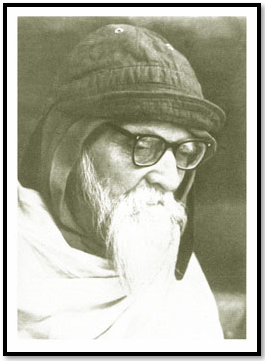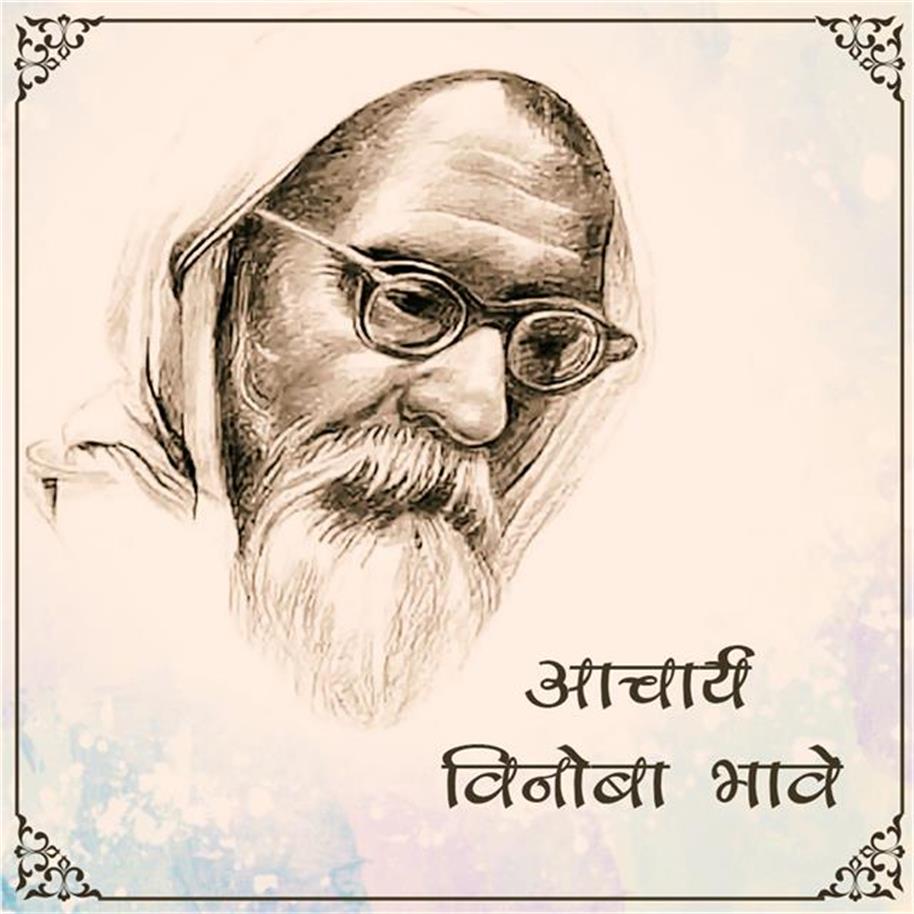SYLLABUS
GS-1: Literature, personalities of the modern times
Context: The Prime Minister of India paid homage to Acharya Vinoba Bhave on his 130th birth anniversary, recalling his towering contributions to India’s spiritual, social, and political landscape.
About Vinoba Bhave
• Vinayak Narhar Bhave, who was revered as Acharya Vinoba Bhave, was a freedom fighter, social reformer, and spiritual teacher.

• He was born on 11 September 1895 at Gagode village, Maharashtra, to Narahari Shambhu Rao and Rukmini Devi.
• In 1916, he met Mahatma Gandhi in Ahmedabad and joined the Sabarmati Ashram, where Gandhi named him Vinoba.
• At the Ashram, he immersed himself in khadi, education, sanitation, and village service.
Contribution to the Freedom Struggle
• In 1921, Gandhi sent him to Wardha to run an Ashram branch.
• He was arrested several times during the 1920s and 1930s and served a five-year jail sentence in the 1940s for leading non-violent resistance to British rule.
• His writings in Maharashtra Dharma journal (1923–27) and Marathi translation of the Bhagavad Gita (1930–31) gained wide recognition.
• In 1940, Gandhi selected him as the first individual satyagrahi during the Individual Civil Disobedience campaign, bringing him national prominence.
• After Gandhi’s assassination in 1948, Vinoba emerged as the leader of the Sarvodaya movement, advocating for social and moral upliftment.
Bhoodan Movements
• In 1951, during a tour of Telangana, Bhave launched the Bhoodan Movement at Pochampalli, where villagers donated 100 acres of land to the landless Dalits.
• Between 1951 and 1964, he walked 65,000 km across India, collecting about 4.8 million acres of land, of which nearly 2.5 million acres were distributed.
• He later expanded this idea into Gramdan (voluntary donation of entire villages).
Recognition and Awards
• In 1958 Vinoba was the first recipient of the international Ramon Magsaysay Award for Community Leadership.
• He was awarded the Bharat Ratna posthumously in 1983
• A University has been named after him, Vinoba Bhave University, located in Hazaribagh district in the State of Jharkhand
Ideology and Later Life
• Vinoba Bhave consistently advocated non-violence, self-sufficiency, compassion, and spiritual transformation in social life.
• In the mid-1970s, he controversially supported Indira Gandhi’s Emergency, calling it Anushasan Parva (Time for Discipline).
• He spent his final years at the Pavnar Ashram in Wardha and died on 15 November 1982 after refusing food and medicine for a few days by accepting “Samadhi Maran” / “Santhara” as described in Jainism.
Books and Writings of Vinoba Bhave
• Translations & Commentaries
- Gitai (Marathi verse translation of Bhagavad Gita)
- Gita Pravachane (Talks on the Gita in prison)
- Sthitaprajna Darshan
- Ishavasyavritti
- Jnanadevanchi Bhajane
- Gitai Chintanika
• Social & Political Thought
- Swarajya Shastra
- Vichar Pothi
- Maharashtra Dharma (journal)
• Essence of Religions
- The Essence of Quran
- The Essence of Christian Teachings
- Rearranged Dhammapada
- Comparative studies of major Indian saints and Adi Shankaracharya.
UPSC Mains Practice Question
Q: “Vinoba Bhave carried forward Gandhi’s vision of Sarvodaya and transformed it into practical movements like Bhoodan and Gramdan.” Critically examine the significance of Vinoba Bhave’s contribution to India’s socio-political landscape.

